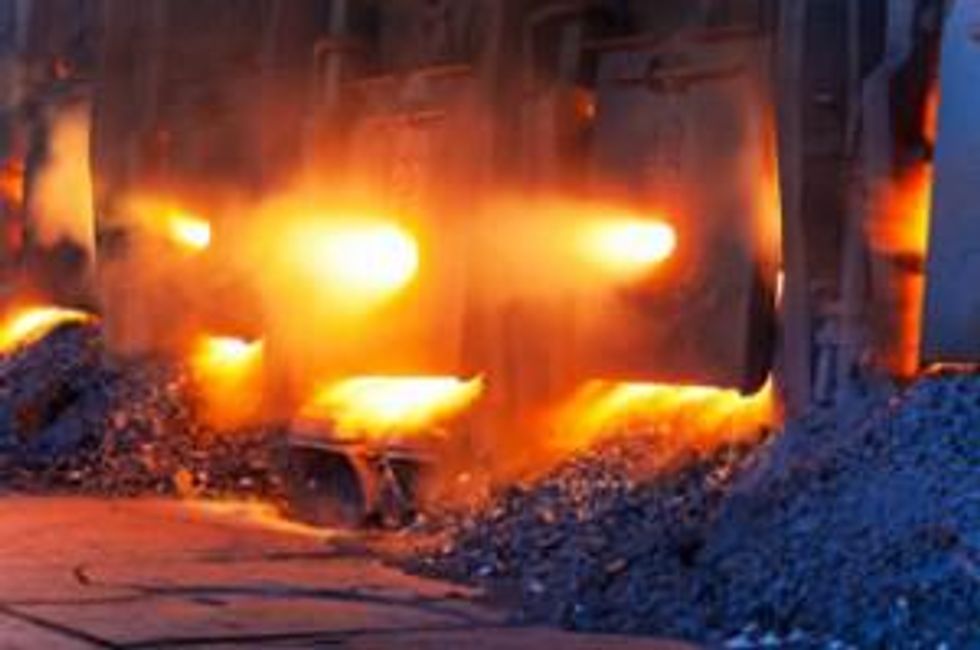African Minerals Looks to Blend Iron Ore and Beat a Stagnant Market
African Minerals announced plans to blend its iron ore with that of Timis in a move aimed at producing a higher grade of iron. The companies also hope to become more competitive in the European steel industry.
African Minerals and Timis are looking to blend their iron ore to better compete in the European steel market.
As the slumping iron ore price continues to affect companies around the world, African Minerals (LSE:AMI) has announced plans to blend its iron ore with that of a newly acquired partner.
In a corporate update released on Monday, the company said it will look at blending iron ore from its Tonkolili mine in Sierra Leone with material from Timis’ Marampa project to produce higher-grade iron ore. The goal? To hopefully lure more European consumers.
Friends with benefits
Established and owned by Frank Timis, executive chairman of African Minerals, Timis acquired the Marampa mine from PricewaterhouseCoopers on Monday. The plan for Timis and African Minerals is to take the 65 percent iron product from Marampa and the 58 percent iron product from Tonkolili and combine them. At its current state, the low-grade iron ore from Tonkolili doesn’t sell well when it’s shipped to China.
The additional benefit of combining the two and finding European buyers is that freight costs to Rotterdam and other European centers are about $12 per tonne lower than shipping costs to China.
“It is expected that, subject to the agreement of commercial terms, AML and ARPS will benefit substantially from lower infrastructure costs by virtue of higher tonnage, as well as the opportunities that will become possible through blending our combined products, accessing new markets in Europe and reducing our combined freight costs as a result,” said Alan Watling, CEO of African Minerals, in a statement.
All about the gains
Taking a more in-depth look at the proposed arrangement, Reuters notes that ore from West Africa usually sells at a discount to the benchmark 62 percent iron ore price. Lower iron prices have not helped the sector either — the iron price has dropped roughly 40 percent from this time last year.
The upside to selling this mixed blend is that it would present a significantly higher price than what the companies currently receive for their product. According to Platts, the price for 58 percent iron is $67.50 per tonne, while the price for 62 percent iron price is about $80.
The European Union represents a lucrative market for iron ore as it accounts for about 10 percent of the world’s steel, putting it in second place behind China. Steel production as a whole is up about 3,000 net tonnes from this time last year.
The announcement provided a welcome boost for African Minerals’ share price. The company has shed some 90 percent of its share price this year, but Monday’s news saw it rise about 20 percent, placing it among the London Stock Exchange’s top gainers in the morning. The company’s share price closed the day roughly 4 percent higher.
Broader appeal
A Dundee Capital Markets report released on Monday afternoon states that African Minerals’ deal with Timis has three benefits, with possibly the most significant being that it “can almost be treated as having one foot in the door for expansion/combination down the road.”
As iron ore prices continue to hamper companies focused on the commodity — with Rio Tinto (NYSE:RIO) and BHP Billiton (NYSE:BHP) engaged in a production war as they seek to become the lowest-cost miner of the steelmaking agent — the opportunity to blend two products looks like an innovative move.
Securities Disclosure: I, Nick Wells, hold no direct or indirect investment in any of the companies mentioned.
